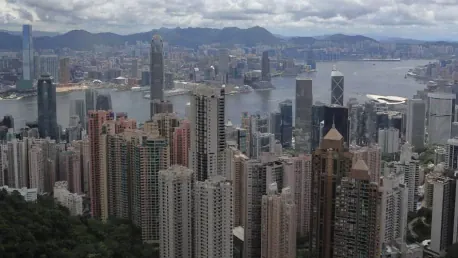On August 25, 2024, Chief Executive John Lee engaged with Hong Kong residents in a town hall meeting in Mong Kok to gather insights for his upcoming policy address. The event brought to light various concerns, especially focusing on retail and social welfare. This article parses through the discussions, key issues, and potential strategies Hong Kong could employ to harmonize economic growth and social well-being.
Introduction to Core Concerns
Chief Executive John Lee’s town hall was a melting pot of ideas and concerns. Residents eagerly shared their views, particularly on the state of the retail sector and the pressing social welfare challenges the city faces. Understanding the intrinsic connection between economic growth and social welfare is essential for sustainable development.
Retail Sector Support
Multiple-Entry Visa Expansion and Its Implications
One of the standout suggestions came from a retail worker advocating for the expansion of the multiple-entry visa scheme. The existing framework, which applies to Shenzhen residents, could be extended to other Greater Bay Area cities. This has the potential to boost the influx of mainland tourists, providing much-needed revitalization to Hong Kong’s retail sector.
Expanding the multiple-entry visas could significantly rejuvenate the retail landscape by easing travel restrictions for mainland shoppers. This move is seen as a proactive strategy to combat sluggish economic performance and to stimulate more robust retail activities.
Local Consumption Vouchers: A Game Changer?
Another prominent request was for the government to issue more local consumption vouchers. These vouchers are aimed at stimulating local spending, thereby revamping a perceived sluggish economic phase. Issuing consumption vouchers is a double-edged sword; while it may offer immediate relief to the retail sector, long-term strategies need to be formulated to sustain this growth.
Challenges Plaguing the Retail Industry
Overcoming Transitional Economic Challenges
Despite reporting an economic growth rate of three percent, various segments within the retail sector continue to face transitional hurdles. The call for more proactive government involvement to magnetize tourists and invigorate local spending patterns highlights persistent difficulties in adapting to new economic realities.
The government’s role in facilitating this transition is critical. Ensuring a seamless adaptation phase through targeted policies can lead to sustained economic resilience and growth within the retail segment.
Social Welfare: A Parallel Concern
Suicide Prevention Initiatives
A significant part of the discussion revolved around maintaining the three-tier suicide prevention program for school students. As mental health issues gain prominence, there is an unequivocal demand for extending this system, which is set to expire this year.
The rationale behind extending the program is rooted in its potential to safeguard the mental well-being of young people. Alongside, the focus on counseling services underscores the need for continual support to at-risk pupils, making it a priority for the administration.
Counseling Services’ Vital Role
John Lee responded positively to the calls for enhanced counseling services, emphasizing the necessity of helping students through structured mental health support. Comprehensive initiatives aimed at personality development and problem-solving skills are critical in reducing the number of at-risk youths, fostering a healthier, more resilient younger population.
Focus on Living Standards
Minimum Space Standards for Residential Homes
An intriguing suggestion called for setting up minimum space standards for residences. This proposal aligns with wider concerns about the adequacy of living spaces and overall environmental quality in Hong Kong.
The minimum space standard proposition aims to address fundamental issues of living conditions, ensuring that residents can live in environments conducive to their health and well-being. Such measures are essential in crafting a long-term, sustainable strategy for urban living.
Long-Term Strategies for Improved Living Conditions
Chief Executive John Lee acknowledged the necessity for long-term strategies to elevate the quality of life in Hong Kong. Addressing residential living conditions is not just an isolated issue but entails a broader commitment to improving environmental quality and public health.
The focus on living standards points to an inherent recognition that economic policies are interconnected with broader societal issues. Enhancing living conditions forms a vital component of comprehensive welfare tactics aimed at uplifting the community.
Economic and Social Interdependence
The Important Role of Comprehensive Policies
The town hall discussions underscored the essential link between economic policies and social welfare. Support for retail isn’t just about bolstering economic metrics; it’s intricately tied to societal well-being, impacting community morale and resilience.
This interdependence necessitates a holistic approach from the government, designing policies that touch both economic stimulus and social welfare. Fostering a balanced ecosystem where retail growth doesn’t overshadow social needs is pivotal.
Proactive Government Measures
The consensus emerged around the need for more assertive government interventions. Expanding existing schemes and introducing new, stakeholder-informed measures will be crucial to addressing the nuanced challenges both sectors face.
The government’s readiness to heed public feedback and translate it into actionable policies can usher in a period of balanced growth, benefiting both the economy and social well-being.
Youth and Mental Health Focus
Counseling and Personality Development Programs
On August 25, 2024, Chief Executive John Lee held a town hall meeting in Mong Kok to connect with Hong Kong residents and gather input for his forthcoming policy address. The session highlighted a range of concerns, with a significant focus on the retail sector and social welfare issues.
Participants voiced their frustrations and offered suggestions on how to address the pressing challenges. The discussion delved into the economic strain on local businesses, the need for more robust social safety nets, and ways to support vulnerable groups in society. Several residents suggested measures like tax relief for small businesses, increased funding for social programs, and initiatives to boost consumer confidence.
Lee listened attentively, noting the community’s apprehensions and ideas. He assured attendees that their input would be carefully considered in formulating policies aimed at balancing economic advancement with social equity. Potential strategies might include fostering a business-friendly environment while ensuring that social services are adequately funded and accessible.
The meeting provided valuable insights into the community’s needs and priorities, setting the stage for comprehensive policies aimed at enhancing both economic growth and social welfare.









